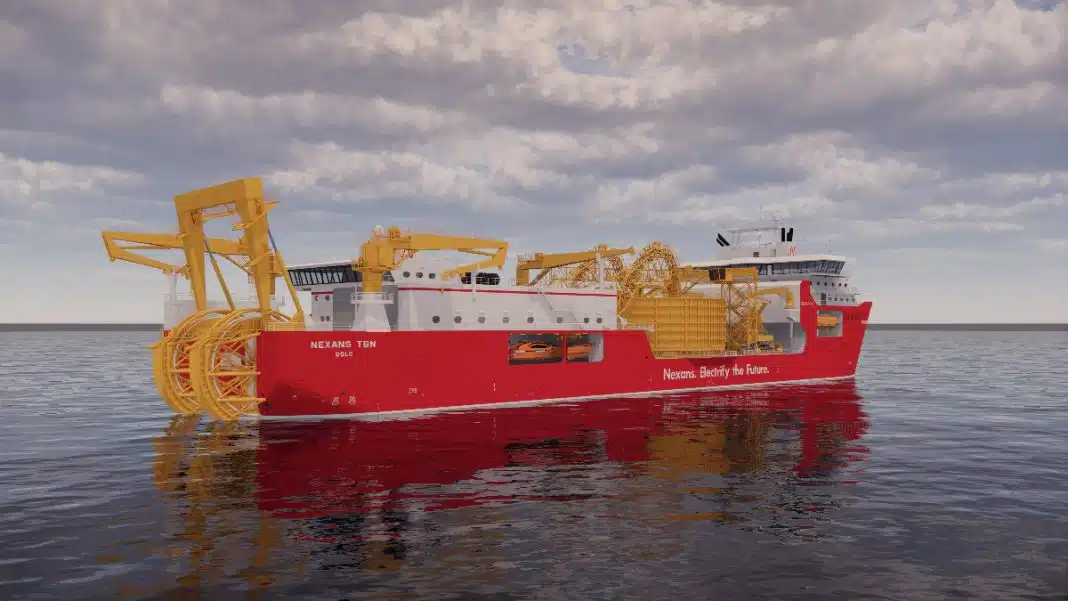ABB has secured an order with Norwegian shipyard Ulstein Verft to supply an advanced power and propulsion system for a forthcoming cable-laying vessel (CLV) of Nexans, a global player in energy transition headquartered in Paris, France. On delivery in 2026, the vessel will join Nexans Skagerrak and sister ship Nexans Aurora – also equipped with ABB technology – as the third and most advanced CLV in the Nexans fleet.
An integrated system comprising main power generation and distribution, energy storage, and electric propulsion will allow the new CLV to execute its cable-laying, -recovery, and -repair tasks in a safe and efficient manner. With a closed-ring configuration providing high fault tolerance and optimal engine use in dynamic-positioning (DP) operations, the system will minimize the risk of power loss for enhanced safety and reliability while maximizing operational flexibility and fuel efficiency.
The onboard energy storage system (ESS) will also reduce engine running hours to keep engine wear and tear to a minimum. In addition, the ESS will provide spinning reserve and peak-shaving capabilities, acting as a back-up power source in case of engine failure and supporting the vessel’s more energy-intensive operations.
“Following the success of Nexans Aurora, ABB is proud to be involved in this project to deliver the new sister ship,” said Rune Braastad, Global Business Line Manager, Marine Systems, ABB Marine & Ports. “Nexans appreciates the benefits that our closed-ring system, ESS, and RDS provide to support safe, efficient, and reliable cable-laying operations. We look forward to strengthening our relationship with both Nexans and Ulstein Verft.”
Alongside main system components – generator, switchboards, transformers, frequency converters, motors, DC switchboard for batteries, and ESS – ABB’s scope of supply includes the Remote Diagnostic System (RDS) for propulsion, thruster inverters, and rectifiers as well as cyber security configuration for the RDS. By providing precise and timely fault detection and continuously monitoring equipment health status, the RDS improves system performance and minimizes the need for on-site service. This results in significant savings in downtime and maintenance costs.












